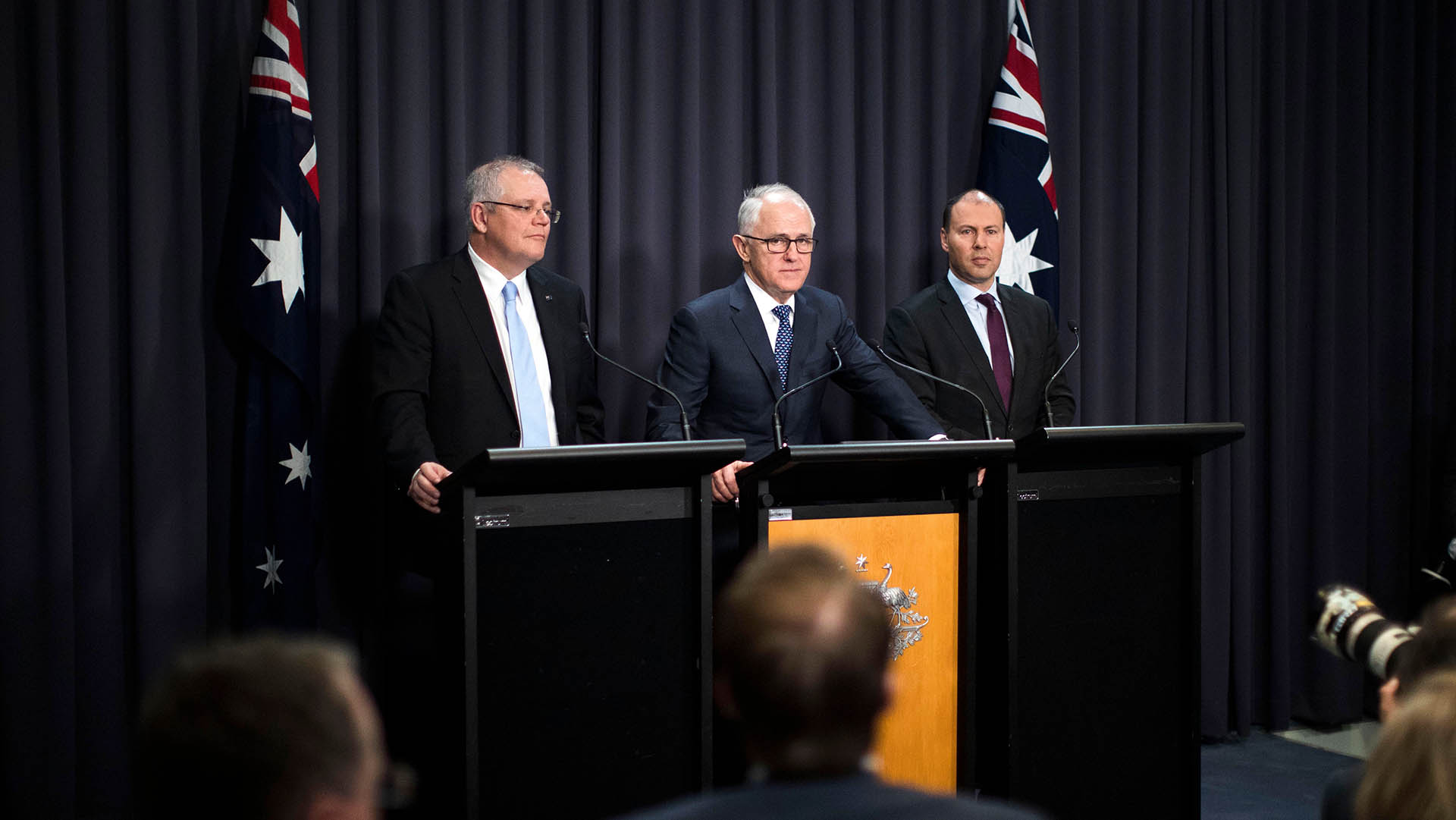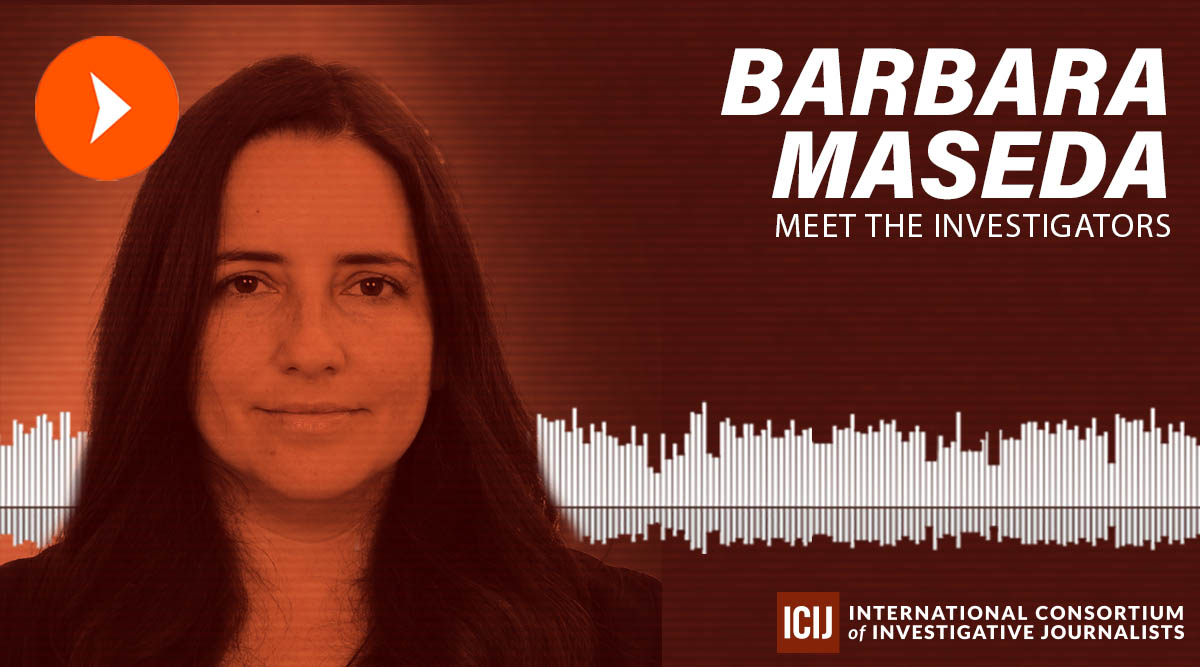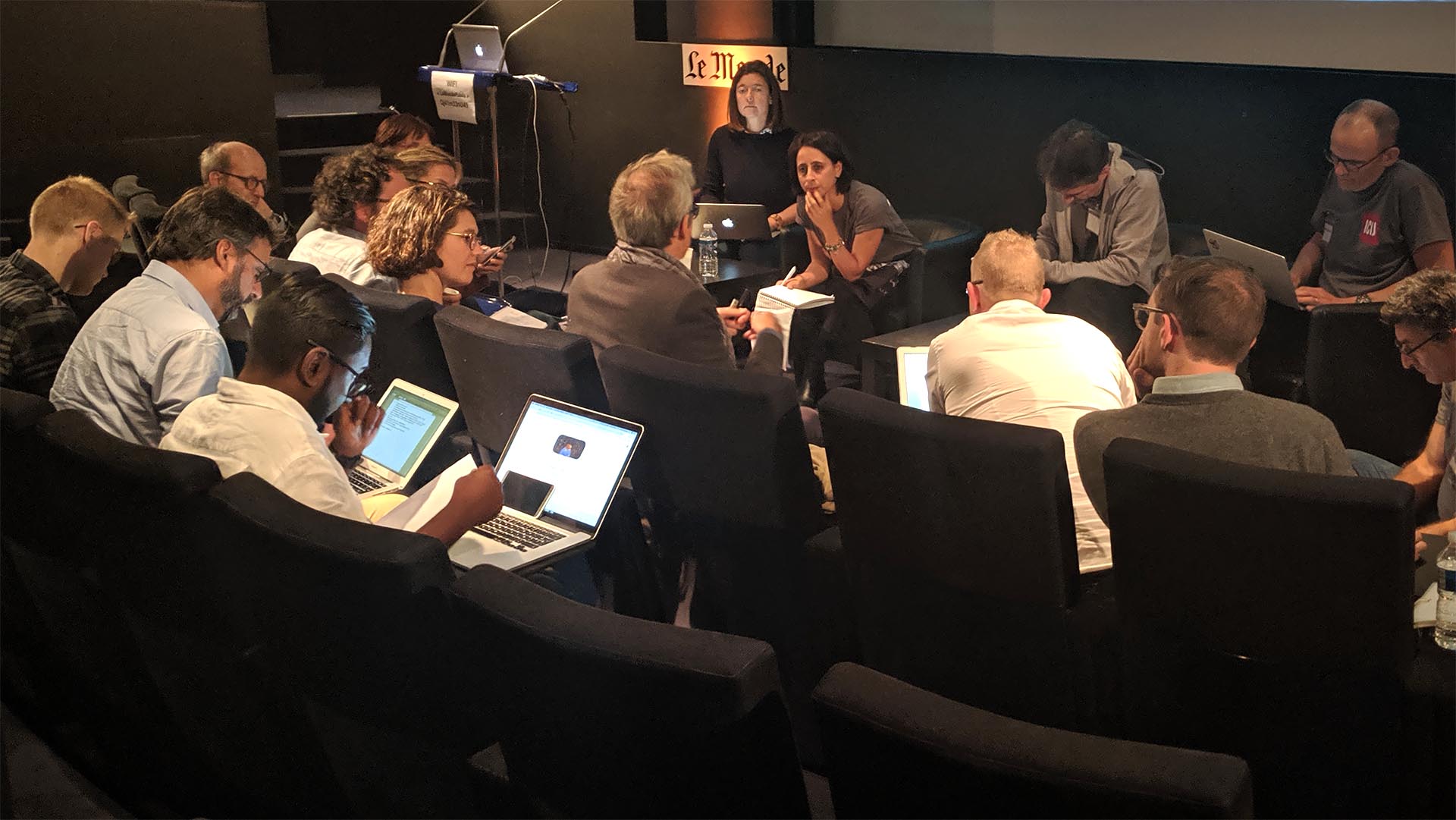MEET THE INVESTIGATORS
‘Accountability is key:’ Using the power and privilege of journalism to empower society
In this month’s Meet the Investigators, Marian Wilkinson talks with ICIJ about going the extra mile on her stories, finding structure in documents, and the power of journalism to hold the powerful to account.
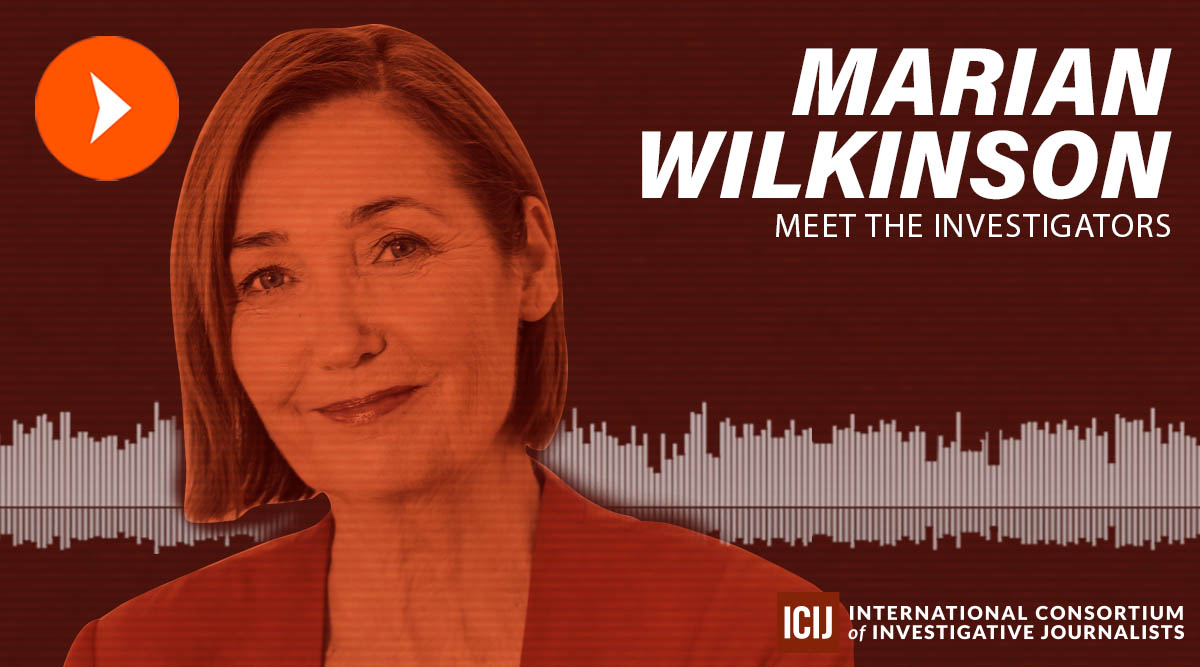
The International Consortium of Investigative Journalists collaborates with hundreds of members across the world. Each of these journalists is among the best in his or her country and many have won national and global awards. Our monthly series, Meet the Investigators, highlights the work of these tireless journalists.
This month, veteran reporter and long-time ICIJ member Marian Wilkinson chats with us about the challenges of investigative reporting in Australia and how she dealt with the relentless “defamation cycle,” as well the importance of holding powerful people accountable, and the unexpected bonus of starting out as a reporter pre-internet.
ICIJ’s Meet the Investigators series was recently awarded by the American Journalism Online Awards as the feature “most likely to inspire young journalists.” Thanks to all our ICIJ Members who have shared their stories with us, and to the community of ICIJ Insiders who have supported this work.
TRANSCRIPT
Sean McGoey: Welcome back to the Meet the Investigators podcast from the International Consortium of Investigative Journalists. I’m your host, Sean McGoey, and I’m an editorial fellow at ICIJ.
This month, we’ll talk to an Australian investigative journalist who cut her teeth covering the notorious Queensland government in the late 1970s. Her introduction to journalism was a bit more accidental, though.
Marian Wilkinson: Hi, my name is Marian Wilkinson. At the student radio [station], someone said, “We need someone to be a reporter. You’re not very good at rock music — why don’t you go and be a reporter?”
McGoey: I’m here with ICIJ’s online editor, Hamish Boland-Rudder, who spoke to Marian earlier this month. How’s it going, Hamish?
Hamish Boland-Rudder: G’day, Sean! This interview was a real treat for me. Marian is one of Australia’s most renowned investigative reporters, with a career spanning four decades.
That’s no mean feat here, with our extremely tough defamation laws. Reporters here are afforded very little legal protection, and it’s pretty common for journalists to be hauled before the courts to defend their work — something that Marian knows all too well.
Wilkinson: As a freelancer in those days, I began digging into — at the age of 19 or 20 — the secret shareholdings of people linked to the premier of the state. And I think I’ve got my first defamation threat writ when I was about 21.
McGoey: Sounds like a fascinating story, so let’s dive straight into the rest of our interview with Marian Wilkinson.
Wilkinson: I started reporting as a university student when I helped set up the first student radio station at the University of Queensland and became a reporter there.
I grew up in a very working-class suburb of Brisbane. On the outer fringes, actually, of Brisbane — we lived in Housing Commission housing. And I was sort of inspired at school by a history teacher and ended up getting a scholarship to university, and it was there [that] I discovered a love of American history and politics. And then, of course, got swept up in the Watergate investigations by Woodward and Bernstein. I remember a fellow student who was at the radio station with me; we would constantly talk about Watergate and the investigations that flowed from that.
When I look back on it, it was probably ludicrously ambitious. But the two of us would kind of like to go around Brisbane thinking, essentially, What would a serious investigative journalist do if they were on this story tracking the premier? So yes, we were very inspired.
Boland-Rudder: So you jumped straight into investigative journalism with a focus on corruption.
Wilkinson: I was seriously lucky, in a sense, because I did start on a student organization that was run as a collective, so that I was allowed to basically snaffle as much time as I wanted in order to do these stories. But at the same time, I have to say, I was, like a lot of our colleagues, a bit obsessive-compulsive.
So I would spend weekends and nights and early mornings doing these things. And I began to learn from anyone who would talk to me, essentially — how to look up a share register, where you had to literally, you know, go down to the stock exchange and try and persuade someone to either give you the register or buy a copy of the register for you.
In a sense, I was lucky to get into it before the internet, because while the Internet has been brilliant, as we know, in terms of being able to access documents, I think that fundamental thing of understanding the structure of documents, that type of thing sticks with you.
In those days, you had to get all the corporate records on microfiche. I got to love libraries because they had all the back issues of the newspapers — but you really had to physically track down people’s past incarnations. Parliamentary libraries were fantastic. So all those things you had to do before the internet.
Boland-Rudder: Obviously a lot has changed since then, but do you still carry some of those early lessons with you?
Wilkinson: Absolutely. And I think in a sense, I was lucky to get into it before the internet, because while the Internet has been brilliant, as we know, in terms of being able to access documents, I think that fundamental thing of understanding the structure of documents, that type of thing sticks with you.
If you’re looking for a court document, when you’ve physically gone down there in the past, you know what sort of file it’s in. You know whether it’s going to be under a statement of claim, or if it’s under an affidavit, it has to be signed… So when you begin searching documents online, you understand [the] structure of information.
I found it helpful, particularly when I started with the Panama Papers investigation. I think all of us felt it was overwhelming when we first saw that amount of documents. But I think talking to the people who worked for ICIJ, when they started talking about folders and structures of documents, I could click into it in a way where I think if I just came to that as my first investigative story, I would have found it really difficult.
McGoey: The variations in Marian’s career are fascinating to me. She’s spanned multiple media, she’s covered local and national politics, terrorism, and the environment, and she’s even been a Washington correspondent.
Boland-Rudder: That’s right. But the thing that stands out about her journalism for me is the way she always takes the story one step further than other reporters, no matter what the topic is. I asked Marian about where this drive comes from.
Boland-Rudder: One hallmark of your reporting is the way you seem to bring every story back to corruption and power structures. Why is this important to you in your storytelling?
Wilkinson: I think it’s absolutely crucial.
If you just write the story, you can write the perfectly correct factual story about this terrorist attack causing this or you can write about this environmental calamity causing that. Unless you can break down for your audience whether human beings are responsible for this outcome, you cannot give people the tools they need to analyze it themselves and work out that this can be changed. In other words, you lead to an atmosphere of doom-ism, which is what I think the tabloid media love.
And I think the best of journalism, as it has inspired people over centuries, is to say, “This is happening. There are particular people who want it to happen. Here they are. If you want to do something about it, here’s that information. And you then go out and exercise your democratic rights, your human rights to try and change what is an egregious situation.
Boland-Rudder: So it’s about accountability.
Wilkinson: Accountability, to me, is the key to good investigative journalism. With the incredible gift we’ve been given to be paid to go out there and dig up information. I think, with it comes an obligation of doing our best to say, who has brought this about? It’s not acts of God. There are individuals who profit through power grabs or monetary games, who profit from these situations that we’re exposing.
McGoey: Marian has written books on government secrecy, border control policy, and political power brokers. Her latest is The Carbon Club, which explores how politicians and business leaders came together to control Australia’s response to the climate crisis. How did this newest book come about?
Boland-Rudder: From Marian’s telling, it was a 15-year project that started in the mid-2000s when Marian was looking for a change of pace. She’d spent a few years in Washington covering a lot of terrorism and war, so a friend asked her to do some research for a documentary on climate change — which was a new topic for Marian.
She approached it with her characteristic rigour, and sure enough, she soon had a thick dossier detailing the intricate relationships between the oil and gas lobbies, the White House in the US and the upper echelons of Australian politics back home. The documentary got put on the backburner, but in 2018, Marian — who, again, was looking for a change of pace — was approached by a publisher here.
Wilkinson: There’s 100 books on climate change. People find them really difficult to get interested in. And there [were] two things for me that motivated the book and made me think it was worth doing in the way I wanted to do it. Number one was [that] I wanted something that showed the structures of money and power in what had happened. And then I realized that it needed to be told as a narrative — the power of nonfiction narrative, with investigative journalism, I think really works.
And that, for me, in a sense, harked back to those old days of Bob Woodward’s books, post Watergate, where you have to put the effort into making it digestible for the audience if you want to do a major piece of work. And so that was what I aimed to do — to use the investigative journalism, all the documents, all the interviews, to break down the power structures, and then to tell it as a narrative.
Boland-Rudder: I’ve always been curious how you distill all that information into a narrative form. Do you think your experience working across print, radio and television, helped you better understand how to create a storyline that audiences could follow?
Wilkinson: When I went and jumped from print journalism to television journalism, man, was it a shock! Because basically I had to take about 90% of the words and throw them away and become very economical — something I always had huge difficulty with, you’ll be surprised to know. But it did teach you much more to refine your message, to get to the point. And this is what I tried to do when I wrote the book — make each chapter get to a point that you were trying to get across to the reader.
Whether it was the point of how money influences think tanks or whether it’s the point of how political lobbies can destroy an election campaign, each chapter was sort of designed around, getting that point out, and I think that’s what longform television taught me.
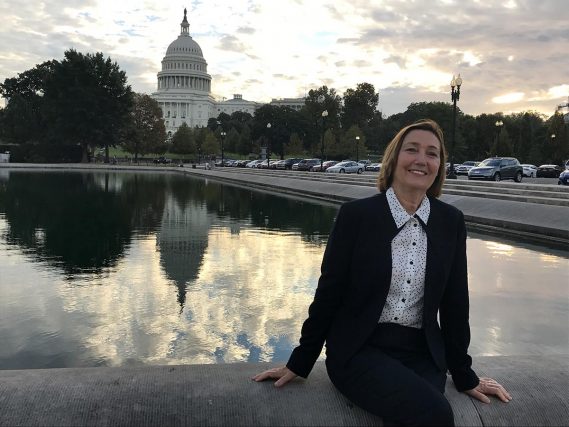
McGoey: So, a thing that I spend a lot of time thinking and reading about is the way that the relationship between the media and the subjects of its coverage is handled by the courts. We heard that clip back at the very beginning where Marian talked about being threatened with a defamation suit when she was just 21, and you mentioned reporters being hauled before court to defend their work. Is that a particularly common occurrence in Australia?
Boland-Rudder: Sadly, yes. I’m not sure how well-known this is outside Australia, but this is a country where the courts have traditionally been quite hostile to the media. During my conversation with Marian, she brought up what she called the “defamation cycle,” where investigative reporters were being sued so often, or facing regular political attacks over their stories, that she would actually go back to daily reporting just to have a break from the constant pressure of investigative work.
Boland-Rudder: What’s it like being an investigative reporter here in Australia?
Wilkinson: Look, I think it’s getting better, because I think the big media companies have learned how to support their reporters better than they have. And we have had a tiny bit of defamation reform in this country. But Australia has been known to have some of the harder defamation laws of the English speaking world, certainly much tougher than the U.S. laws.
One of the things we always get stuck on here is not whether what you write is just true. It’s what the imputations of what you write are. So the game in the court becomes, can the person suing you say there’s more and more imputations, rather than just what’s written on the page? And that is what kills you. So your media company, unless they’ve got very deep pockets, the inclination is can we settle?
The other thing that’s kind of weird in Australia that I can’t imagine would actually happen much in America, or even in the U.K. or France, is that Australia is a small pond. So the top media executives are really close to the senior government officials. And they all have business interests together, or they’re appointed by the government.
And I know, because I’ve been on both sides of this, that as an editorial executive. If a government minister doesn’t like a story, they will be on the phone to your media executive personally, blasting the crap out of them. And then that comes down the line to you.
McGoey: I think it would be a pretty significant understatement to say that that sounds extremely stressful.
Boland-Rudder: It is. But Marian told me she’s lucky enough to live close to some of Australia’s most beautiful beaches, so she blows off steam by going for long walks and by snorkeling in one of the bays near her house. If there’s anything Disney taught me in the late 80s, it’s that life is better under the sea.
McGoey: As much as I would love to close the podcast on a Little Mermaid reference, we do like to leave our listeners, especially young and aspiring journalists, with some practical advice from an accomplished veteran. Did Marian have anything to pass along on that front?
Boland-Rudder: You mean apart from devoting full time to floating? Yes, of course. You don’t chat with one of your country’s most experienced reporters without asking for a few sly tips along the way.
Boland-Rudder: When you’re chatting with young, up-and-coming cub reporters, what’s the number one tip you give to them these days?
Wilkinson: At the risk of repeating myself, accountability. Don’t stop your investigation halfway through. When you hit that closed door — as we tend to do a lot more in Australia than, say, in the US — try and find out who’s in the outer circle from that closed door, and then work your way in, even if you have to go through three or four layers before you get there.
As we all know, in journalism, the reason you mostly get through that door is because someone rings someone and says “talk to her.” And you’ve got to find the person who will make the phone call to the person you want to talk to, and who will tell them “talk to her” or “talk to him.” And the only way you do it is going to that outer circle.
McGoey: That was our interview with Marian Wilkinson. Thanks for spending some time with her, Hamish!
Boland-Rudder: Cheers, Sean.
McGoey: Thank you as well to Marian Wilkinson and all the journalists who share their stories here on the award-winning Meet the Investigators podcast! Please take a minute to send us your feedback at social@icij.org or share this episode on social media using the hashtag #MeetTheInvestigators.
Meet the Investigators is a production of the International Consortium of Investigative Journalists. I’ve been your host, Sean McGoey, and this episode was produced by me and Hamish Boland-Rudder. Thanks for listening — we’ll talk to you again soon!
If you’re a fan of our Meet the Investigators series, please consider making a donation to support ICIJ. Not only will your donation help support our work with journalists like Marian, but as an ICIJ Insider, you’ll also receive sneak previews, access to exclusive chats with reporters and behind-the-scenes content like this delivered straight to your inbox. Donate today, and support independent investigative journalism.
